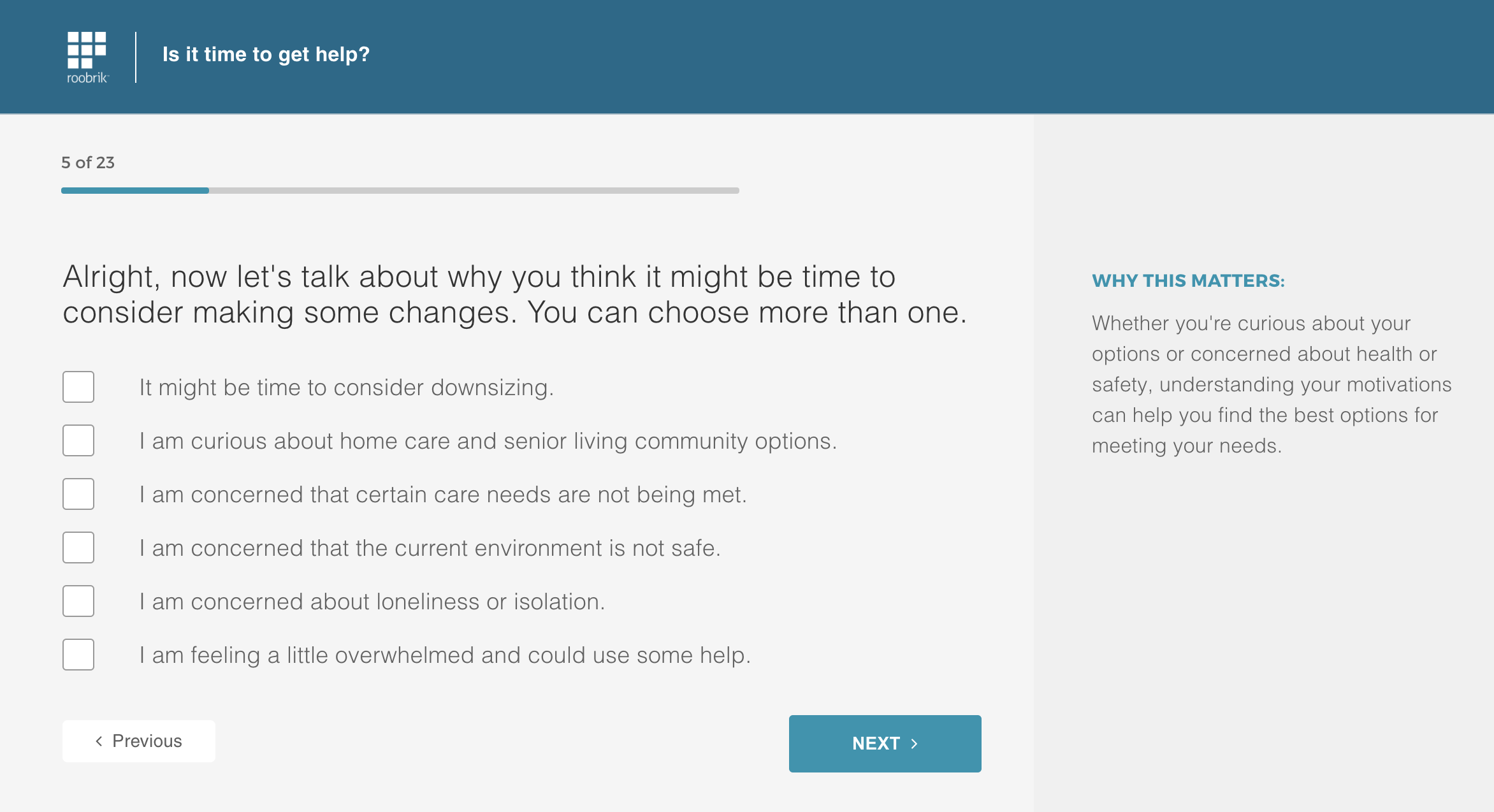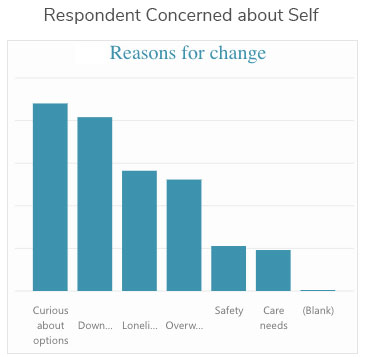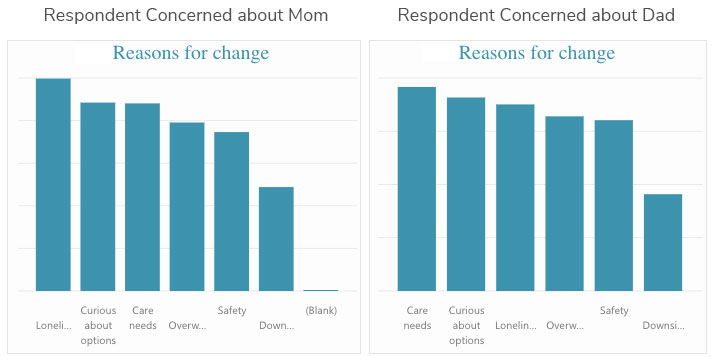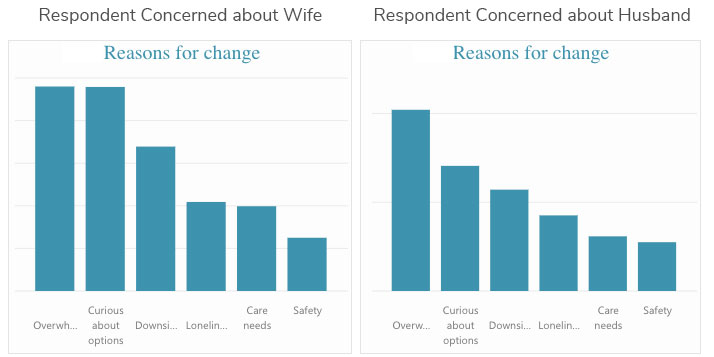Anatomy of Our Assessment: Understanding Why You’re Here
This feature is a question-by-question analysis of our “Is it time to get help?” assessment, and how it helps families move forward and make deeper connections with our clients.
Let’s discuss Question 5.

With this question, we try to get to the heart of why people are taking the assessment. Do they feel lonely at home? Are they worried about mom or dad’s safety? Or do they just want to better understand senior care options?
We’ve discovered that people often have several reasons for exploring senior care, and that often their motivations aren’t always clear, even to themselves. By encouraging them to select multiple answers, we invite them to acknowledge concerns that may be difficult to share otherwise. One of our primary goals is to help inform meaningful conversations between families and communities; understanding a family’s reasons for researching senior care is a valuable ice breaker when helping them navigate the decision process.
As with many of our questions, the answers often depend on whether the respondent is taking the assessment for themselves or for a parent or spouse.
Older Adults Looking for A Change or Companionship
For example, most older adults say that their top three reasons for considering a change in their living situation are:
(1) they want to know more about their options
(2) they considering downsizing or,
(3) they are feeling lonely at home.

Adult Children Concerned about Emotional Needs & Care
When an adult child is completing the assessment for a parent, however, they are more likely to say that they are concerned that their mom or dad needs more care or is feeling lonely. As you might expect, more than twice as many people take the assessment with their mother in mind versus their father, a reflection perhaps of women’s longer lifespans, on average.

Spouses Feel Overwhelmed
For older adults who are exploring care options for a spouse, the number one reason for considering senior care is feeling overwhelmed followed by curiosity about options and an interest in downsizing.

Across the board respondents share practical concerns about downsizing or wanting to know more about living options. People are also very concerned about feelings of loneliness and isolation either for themselves or for their parents.
Widespread Loneliness Especially Among Older Adults
These concerns echo other research on loneliness and aging, which has suggested that as many as 75% of American adults report feeling moderate to high levels of loneliness. These feelings often peak at key points in people’s lives, namely their late-20s, mid-50s, or late 80s.(1)
For communities looking to understand and connect with families about their experiences and priorities around senior care, it may be just as or even more important to engage with them about how they are feeling before tackling other considerations like downsizing, care needs, or safety concerns.
Sources
- LaFee, Scott. Serious Loneliness Spans the Adult Lifespan but there is a Silver Lining. Media release. Dec. 18, 2018. Available at: https://health.ucsd.edu/news/releases/Pages/2018-12-18-Serious-Loneliness-Spans-Adult-Lifespan-but-there-is-a-Silver-Lining.aspx.
For more blogs that explore the thinking behind Roobrik assessment tool check out 23 Questions: The Science Behind the Survey, Anatomy of Our Assessment: Getting Personal, Anatomy of our Assessment: Let’s Talk and Anatomy of our Assessment: Affordability.





